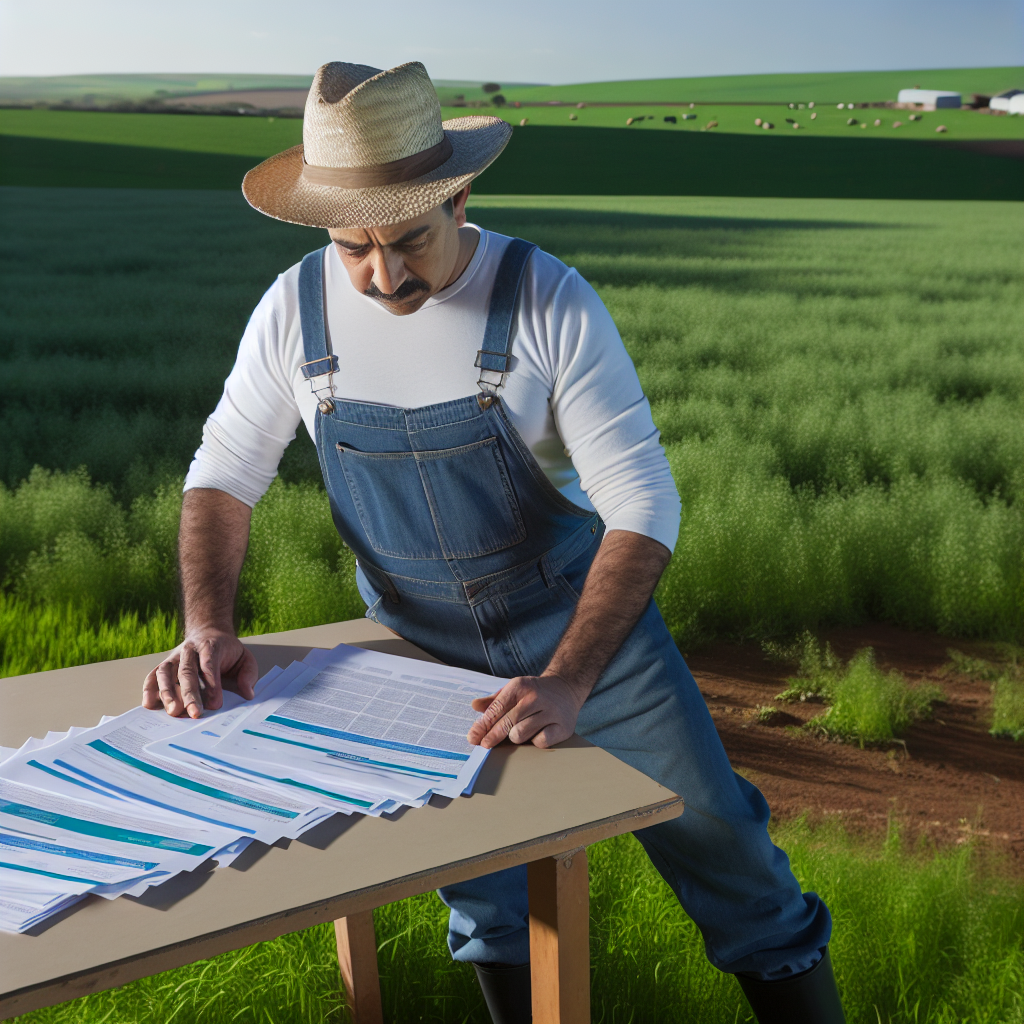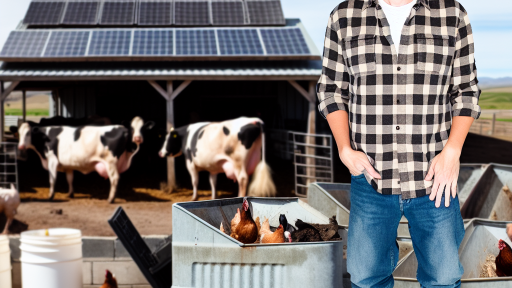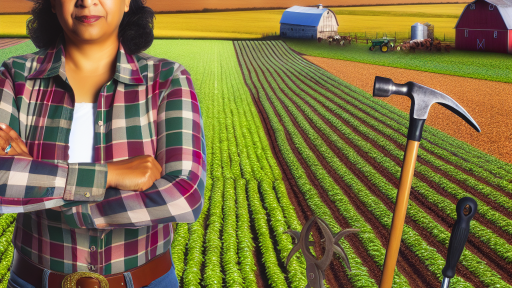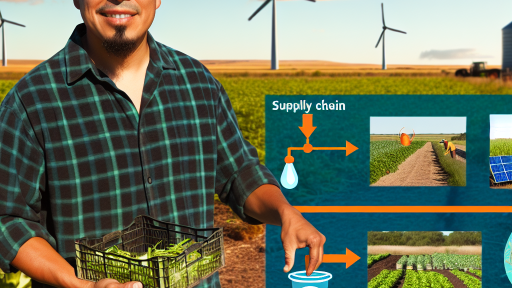Understanding the Importance of Farm Insurance
Protection Against Financial Loss
Farm insurance safeguards your investment from unexpected events.
It helps cover losses caused by natural disasters, theft, or accidents.
Farmers can face significant financial strain without proper coverage.
Compliance with Legal Requirements
Many regions require specific insurance for farming operations.
Being compliant protects your farm from potential legal issues.
Proper insurance ensures you adhere to all necessary regulations.
Peace of Mind for Farmers
Insurance provides farmers with peace of mind during uncertain times.
Knowing that protection is in place allows for better focus on farming.
Farmers can make more informed decisions with less worry.
Various Types of Farm Insurance
Understanding different types of insurance is essential for farmers.
Property insurance protects buildings and equipment on the farm.
Liability insurance covers injuries or accidents on your property.
Crop insurance helps mitigate losses due to bad weather or disease.
Livestock insurance safeguards against the loss of animals.
Choosing the Right Insurance Provider
Selecting a reliable insurance provider is crucial for comprehensive coverage.
Transform Your Agribusiness
Unlock your farm's potential with expert advice tailored to your needs. Get actionable steps that drive real results.
Get StartedResearch different companies to understand their offered services.
Speaking with other farmers can provide valuable insights into options.
Evaluate each provider’s reputation and customer service quality.
Understanding the claims process is also essential when choosing an insurer.
Types of Farm Insurance Policies Available
Property Insurance
Property insurance protects the physical assets of your farm.
This includes buildings, equipment, and stored products.
Furthermore, it covers losses due to fire, theft, or natural disasters.
Liability Insurance
Liability insurance safeguards against claims arising from injury or damage.
This policy covers incidents involving your farm operations.
It protects you in case someone gets injured on your property.
Crop Insurance
Crop insurance is essential for protecting your income from crop loss.
It covers unforeseen events like droughts or floods.
Additionally, it provides financial security during tough seasons.
Livestock Insurance
Livestock insurance secures your investment in animals.
It protects against losses from diseases, theft, or accidents.
This type of insurance is crucial for livestock producers.
Equipment Insurance
Equipment insurance covers machinery on your farm.
This includes tractors, harvesters, and irrigation systems.
It protects you from losses due to breakdowns or accidents.
Business Interruption Insurance
Business interruption insurance compensates for lost income during downtime.
This policy helps maintain cash flow when disaster strikes.
It is vital for keeping your farm operational during recovery.
Worker’s Compensation Insurance
Worker’s compensation insurance protects your employees in case of injury.
This policy covers medical expenses and lost wages.
Showcase Your Farming Business
Publish your professional farming services profile on our blog for a one-time fee of $200 and reach a dedicated audience of farmers and agribusiness owners.
Publish Your ProfileMoreover, it is a legal requirement for many farming operations.
Additional Considerations
When choosing insurance, assess your unique farm needs.
Understand the risks your farm faces based on location and type.
Consult with an insurance agent who specializes in agriculture.
They can guide you to the best policies for your situation.
Assessing Your Farm’s Unique Risks and Needs
Identifying General Risks
Every farm faces a range of risks.
These risks can stem from weather events, pests, and equipment failures.
It’s essential to categorize these risks effectively.
Start with understanding your geographical location.
Your farm’s climate significantly influences its vulnerabilities.
Next, consider the types of crops and livestock you manage.
Each variety comes with its specific set of risks.
Evaluating Financial Risks
Financial risks can jeopardize your farm’s sustainability.
Market fluctuations may affect your income stability.
Additionally, unexpected expenses can arise at any moment.
Ensure you account for maintenance costs and replacements.
Identify potential losses in crops due to disasters.
Next, analyze your farm’s debt obligations.
Understanding your financial exposure helps in planning.
Anticipating Natural Disasters
Natural disasters can strike unexpectedly, impacting output severely.
Floods, droughts, and hurricanes pose significant threats.
Each region faces unique natural disaster risks.
Research historical data to gauge possible impacts.
Consider investing in risk assessment tools for better insight.
Additionally, stay informed about local disaster preparedness resources.
Understanding Liability and Property Risks
Liability risks can arise from accidents on your property.
Farms often involve visitors, workers, and equipment use.
Provide adequate safety measures to minimize these risks.
Regular training for staff can enhance safety protocols.
Moreover, property risks include theft and damage to equipment.
Taking inventory of valuable assets is crucial for assessment.
Customizing Insurance Solutions
After assessing your unique risks, it’s time to find suitable coverage.
Select insurance policies that specifically meet your needs.
Consider farm owners liability insurance for added protection.
Crop insurance can safeguard against losses from natural events.
Equipment breakdown coverage is valuable for machinery issues.
Engage with an insurance agent experienced in agricultural policies.
They can tailor recommendations to align with your risks.
Uncover the Details: Cost Control Methods For Sustainable Farm Financial Health
Comparing Coverage Options: Crop, Livestock, and Property Insurance
Understanding Crop Insurance
Crop insurance protects farmers against loss of their crops.
Showcase Your Farming Business
Publish your professional farming services profile on our blog for a one-time fee of $200 and reach a dedicated audience of farmers and agribusiness owners.
Publish Your ProfileThis coverage helps mitigate risks from natural disasters.
Additionally, it supports farmers financially during challenging times.
Farmers should evaluate policies carefully to choose the right type.
Two primary types of crop insurance exist: Actual Production History (APH) and revenue protection.
APH focuses on compensating farmers for lost yields.
Revenue protection guarantees revenue based on historical records.
Exploring Livestock Insurance
Livestock insurance protects against the loss of farm animals.
This coverage includes various incidents, such as theft and accidents.
Farmers can choose between multiple policies based on their needs.
Some policies cover specific breeds or ages of animals.
Understanding the risks associated with livestock is crucial.
Furthermore, farmers must assess the costs of different policies.
Evaluating Property Insurance
Property insurance covers physical assets on the farm.
This includes buildings, machinery, and equipment.
Farmers should consider the unique needs of their property.
Some policies offer additional coverage for natural disasters.
This type of insurance helps in protecting investments made in farming.
Choosing appropriate property coverage can safeguard against unexpected events.
Comparing Insurance Providers
Not all insurance providers offer the same coverage options.
Farmers must compare policies from various companies.
Factors to consider include premiums, coverage limits, and exclusions.
Reading customer reviews can provide insights into service quality.
Additionally, consulting with a local insurance agent can help.
An agent can guide farmers through the decision-making process.
Final Considerations for Farmers
Farmers should regularly review their insurance policies.
Changing circumstances may require updates or adjustments.
Ensuring adequate coverage prevents financial loss in emergencies.
Farmers must choose wisely to protect their livelihood.
Explore Further: Risk Management Strategies for Successful Farming
Evaluating Insurance Providers and Their Reputation
Understanding the Importance of Reputation
Reputation plays a crucial role in selecting an insurance provider.
A strong reputation often indicates reliability and quality service.
Moreover, a well-regarded provider will prioritize customer satisfaction.
This focus ensures that claims are processed efficiently.
Researching Insurance Companies
Start your research by looking at online reviews.
Customer testimonials provide insight into real experiences.
Consider visiting independent review sites for impartial information.
Social media platforms also serve as valuable resources.
Checking Ratings and Accreditation
Use industry ratings to gauge provider performance.
Organizations such as A.M. Best offer ratings based on financial strength.
Check if the company is accredited by relevant regulatory bodies.
Showcase Your Farming Business
Publish your professional farming services profile on our blog for a one-time fee of $200 and reach a dedicated audience of farmers and agribusiness owners.
Publish Your ProfileAccreditation often reflects professionalism and trustworthiness.
Assessing Financial Stability
Financial stability is critical when selecting an insurance provider.
A financially strong company is more likely to fulfill claims.
Review their annual reports for insight into their financial health.
Pay attention to their claims-paying ability as well.
Seeking Recommendations
Personal recommendations can be highly beneficial.
Ask fellow farmers or agricultural professionals for their experiences.
Additionally, consider consulting local agricultural extension offices.
These entities often have useful information about providers.
Evaluating Customer Service
Customer service quality is an essential factor in your decision.
Contact potential providers with questions to gauge their responsiveness.
Evaluate how they handle inquiries and concerns.
Good communication can make a significant difference during claims.
Understanding Policy Options
Review the insurance policies offered by each provider.
Ensure they cover the specific needs of your farming operation.
Consider the various types of policies available.
Customization options can provide tailored coverage for your farm.
Comparing Premiums and Coverage
Finally, compare premiums across different providers.
Don’t focus solely on cost; consider value and coverage depth.
Understand the trade-offs between higher premiums and better coverage.
Striking the right balance is vital for effective insurance.
Find Out More: Best Practices in Farm Succession Strategies
Understanding Policy Terms and Conditions
Overview of Policy Terminology
Understanding insurance policy terms is crucial for every farmer.
It helps in making informed decisions regarding coverage options.
Insurance policies often include specific language that may seem complex.
Familiarizing yourself with this terminology can clarify your coverage.
Key Terms to Know
Premium refers to the amount you pay for your insurance coverage.
Deductibles are the costs you must cover before insurance kicks in.
Coverage limits define the maximum amount the policy will pay.
Exclusions outline what is not covered under the policy.
It’s essential to read these details thoroughly before purchasing a policy.
Understanding Coverage Options
Farm insurance can include various coverage types.
Property coverage protects your physical assets and structures.
Liability coverage safeguards against claims from accidents or injuries.
Crop insurance covers losses due to events like drought or flooding.
Evaluating your needs will help you choose appropriate coverage options.
Reading and Interpreting the Policy
Carefully read the entire policy document before signing.
Pay attention to endorsements that may modify coverage terms.
Ask your insurance agent to explain any confusing sections.
Note the renewal terms and conditions for future reference.
Showcase Your Farming Business
Publish your professional farming services profile on our blog for a one-time fee of $200 and reach a dedicated audience of farmers and agribusiness owners.
Publish Your ProfileImportance of Clarity in Terms
Clear terms help prevent disputes when filing a claim.
Ambiguities can lead to misunderstandings about coverage expectations.
Ensure all terms are straightforward and unambiguous.
This clarity gives you confidence in the policy you choose.
Gain More Insights: Implementing Drones for Crop Monitoring and Management

The Role of Additional Coverage Options
Understanding Liability Coverage
Liability coverage protects your farm from legal claims.
Farm operations can face various risks of liability.
For instance, injuries on your property can lead to lawsuits.
Additionally, damage to neighboring properties can incur liabilities.
Choosing the right liability policy is essential for protection.
Coverage for Natural Disasters
Natural disasters pose significant threats to farms.
Floods, hurricanes, and wildfires can devastate crops and equipment.
Having disaster coverage can provide much-needed financial relief.
Ensure your policy covers specific risks in your area.
Consider additional coverage for events like droughts and hail.
Protecting Your Equipment
Farm equipment is a major investment for any operation.
Equipment coverage safeguards your machinery from damage or theft.
Monitor your equipment’s value to determine appropriate coverage levels.
Many policies offer options for replacement costs versus actual cash value.
Investing in equipment coverage can save money in the long run.
Evaluating Additional Coverage Options
Producers often overlook various additional coverages.
Consider options like livestock, crop, and product liability insurance.
Each insurance type addresses specific risks that farms face.
Evaluate your unique needs to find the best coverage blend.
Consulting with an insurance expert can help clarify options.
Cost Considerations
Understanding Premiums
Premiums represent the amount you pay for insurance coverage.
They often vary based on the type of coverage you select.
Higher coverage limits usually lead to higher premiums.
You need to evaluate what coverage best fits your needs.
Additionally, consider how premiums fit into your overall budget.
Evaluating Deductibles
Deductibles are the amounts you must pay before insurance helps.
Choosing a higher deductible often lowers your premium costs.
However, this means more out-of-pocket expenses when claims occur.
It’s essential to balance deductible levels with potential costs.
Thus, make an informed choice that aligns with your financial situation.
Assessing Claims Process
The claims process determines how you receive payment for losses.
A streamlined claims process enhances your experience during difficult times.
Research insurance companies’ reputations regarding their claims handling.
Ensure they have adequate support and efficiency in processing claims.
Furthermore, read reviews and testimonials from other farmers.
Showcase Your Farming Business
Publish your professional farming services profile on our blog for a one-time fee of $200 and reach a dedicated audience of farmers and agribusiness owners.
Publish Your ProfileComparing Different Policies
Compare multiple insurance policies to find the best fit.
Look at the coverage options against your specific risks.
Each policy may offer different features and benefits.
Keep your farming operational needs in mind during comparisons.
Consider seeking advice from an insurance broker for guidance.
The Claims Process: How to Navigate It Effectively
Understanding the Claims Process
The claims process is crucial for successful insurance management.
It involves notifying your insurer about an incident affecting your farm.
Understanding this process can help you receive timely support.
Gathering Necessary Documentation
Start by collecting all relevant information regarding the incident.
Take photographs of damage and losses for a detailed record.
Document your financial records, including receipts and invoices.
This documentation will support your claim and demonstrate your losses.
Notifying Your Insurance Provider
Contact your insurance provider as soon as possible.
Provide them with the details you gathered, including documentation.
Make sure to inform them of any deadlines for reporting claims.
A prompt notification increases your chances of a favorable outcome.
Working With a Claims Adjuster
Once you file a claim, an adjuster will be assigned to investigate.
This professional evaluates the damage and determines compensation.
Be prepared to discuss the details of your claim openly.
Respond to any requests for additional information promptly.
Understanding the Decision
After reviewing your claim, your insurer will make a decision.
You will receive written notification of their findings.
If your claim is denied, ask for the reasons behind the decision.
This understanding can help you address any issues in your claim.
Appealing a Denied Claim
If you disagree with the denial, consider filing an appeal.
Gather additional evidence to support your case during this process.
Clearly outline why you believe the claim should be approved.
An appeal can lead to a reassessment of your situation.
Ensuring Future Success
After navigating the claims process, reflect on what you learned.
Use this experience to prepare for potential future claims.
Consider changing your policy to better suit your needs.
Strengthening your understanding of claims can streamline future interactions.




